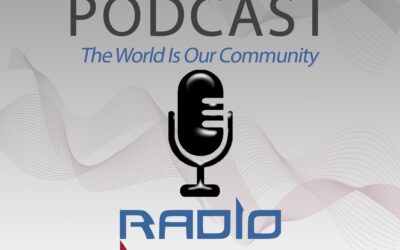Rabia Mayet | rabiamayet@radioislam.co.za
02 October 2024
4-minute read

A hadith states something to the effect: “When a person saves a life, it is as if he has saved the whole of mankind.” There are few things in life which we can control, because ultimately everything is in Allah’s control. While we believe completely in the concept of taqdeer, there are things within our control that can make a difference in our lives and the lives of the ummah. Learning first aid is one of these things, and according to Tahera Saloojee, a paramedic student, every person should be equipped with a first-aid qualification. There are a number of organizations providing these courses. A first-aid qualification lasts 2-3 years and should be upgraded regularly. FIMA, the Federation of Muslim Associations, runs an initiative to get the community equipped with first aid equipment and to teach the community basic first aid.
Tahera, a qualified Aalimah and enrolled in her first year of studying towards becoming a paramedic, was inspired by always wanting to do something health related. The loss of her brother in a motor-vehicle accident propelled her onto a path towards her medical studies. She completed her Aalimah course when she was younger and while she always wanted to study further, at a later stage in her life, she found herself in a situation where she needed to do more. Starting off with a series of small courses, she eventually realized that every job field requires a matric. So at the age of 30, Tahera determinedly went back to school online and wrote her matric, before enrolling at med school.
She shared these tips to control panic and centre yourself:
- Recite a name of Allah or Bismillah to centre yourself.
- Don’t run – remind yourself of the bigger picture and create awareness.
- Bring mindfulness into it – think of one thing you can see, one thing you can hear, one thing you can smell, and one thing you can touch.
Basic first aid covers how to deal with choking, drowning and burns. Choking is common, especially with toddlers, and little objects like sweets and toys are often the biggest choking hazards. Simple sweets like marshmallows can expand if they don’t go past the pipe in the throat and this can easily block a child’s air pipe. If you are able to reach any object in the back of the child’s mouth, remove it with your finger. If not, turn the kid upside down and backslap. In the case of partial choking in adults, bending forward and coughing is a natural manner in which to stop the choking or remove the object. If this is ineffective, as it usually is in full choking where the person has no sound coming out of their mouths, upward backslapping or the Heimlich maneuver is the best way to remove the lodged object. Sometimes an object lodges in the air pipe instead of the food pipe so taking a sip of water will be effective because the swallowing motion allows a resetting of the system.
When it comes to water safety, it is important to remember that anyone can drown, even if they know how to swim. A little child can drown in a few seconds, in very shallow water, and even in the bathtub. If you have a pool, be sure to have all preventative measures in place and teach all your family members to swim. In the case of a drowning, first, call for help, then remove the child or the person from the water with the help of a swimming aid, because even if you know how to swim, it is hard to pull a drowning person out of the water. Secondly, determine what state the person is in. If the person is responsive, get them to cough out any water they may have swallowed. If they are unresponsive, check for a pulse, then listen or check for breathing by determining whether the chest and stomach are rising. Then start CPR until the person responds, by first turning him or her into the recovery position.
When treating burns, Tahera suggests running the area under cold water and keeping Burn-Shield on hand, preferably in the fridge. If you are feeling no pain but can see the burn, this would not necessarily be a good thing and you would need to get your nearest emergency room.
The importance of knowing emergency and first aid cannot be understated and basic level 1 first aid is an essential for all. Helping the ummah starts within your own home.
Listen to the full interview on the New Horizons program with Faaiza Munshi and Tahera Saloojee.








0 Comments